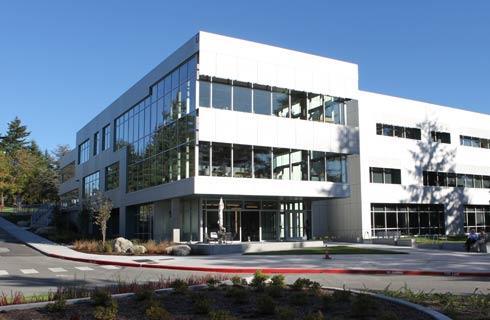Bachelor of Science in Chemical Engineering/Master of Science in Science, Technology and Public Policy

学历文凭
Combined Baccalaureate and Master's Prog

专业院系
化学工程

开学时间

课程时长

课程学费

国际学生入学条件
For all bachelor's degree programs, a strong performance in a college preparatory program is expected.
Generally, this includes 4 years of English, 3-4 years of mathematics, 2-3 years of science, and 3 years of social studies and/or history.
Specific math and science requirements and other recommendations 3 years of math required, pre-calculus recommended.
Submit an official high school transcript.
TOFEL- 79
IELTS- 6.5
Generally, this includes 4 years of English, 3-4 years of mathematics, 2-3 years of science, and 3 years of social studies and/or history.
Specific math and science requirements and other recommendations 3 years of math required, pre-calculus recommended.
Submit an official high school transcript.
TOFEL- 79
IELTS- 6.5
IDP—雅思考试联合主办方

雅思考试总分
6.5
了解更多
- 雅思总分:6.5
- 托福网考总分:79
- 托福笔试总分:160
- 其他语言考试:PTE Academic 58
CRICOS代码:
申请截止日期:请 与IDP联系 以获取详细信息。
课程简介
A chemical engineering BS prepares you to advance nano-scale composites, semiconductors, pharmaceuticals, plastics, fibers, metals, and ceramics and develop alternative energy systems, biomedical materials and therapies, and more. RIT’s degree in chemical engineering is a comprehensive program of study that prepares you to advance nano-scale composites, semiconductors, pharmaceuticals, plastics, fibers, metals, and ceramics and to develop alternative energy systems, biomedical materials and therapies, and strategies that minimize the environmental impact of technological advancements.<br><br>Chemical engineering applies the core scientific disciplines of chemistry, physics, biology, and mathematics to transform raw materials or chemicals into more useful or valuable forms, invariably in processes that involve chemical change. All engineers employ mathematics, physics, and engineering to overcome technical problems in a safe and economical fashion. A chemical engineer provides the critical level of expertise needed to solve problems in which chemical specificity and change have particular relevance. They not only create new, more effective ways to manufacture chemicals, they also work collaboratively with chemists to pioneer the development of high-tech materials for specialized applications. Well-known contributions include the development and commercialization of synthetic rubber, synthetic fiber, pharmaceuticals, and plastics. Chemical engineers contribute significantly to advances in the food industry, alternative energy systems, semiconductor manufacturing, and environmental modeling and remediation. A special focus on process engineering cultivates a systems perspective that makes chemical engineers extremely versatile and capable of handling a wide spectrum of technical problems. Students develop a firm and practical grasp of engineering principles and the underlying science associated with traditional and emerging chemical engineering applications.<br>BS in Chemical EngineeringMS in Science, Technology, and Public Policy: Throughout history, technology has been a major driver of social, political, and economic change. Societies around the globe employ public policies to solve problems and achieve their social, economic, and environmental objectives. The spheres of public policy and technology overlap as society is challenged to consider not only the role of new technologies in its quest for improved quality of life, but also how policies affect the development, emergence, and choice of new technologies. Because of the role engineers play in creating new technology, they increasingly have an important role in helping to shape public policy. Moreover, policies affecting how we as a society live and work—such as environmental, industrial, energy, and national security policy, to name a few—demand that engineers be prepared to integrate policy issues into their engineering practice. <br>1 MBA: Students who enroll in a qualifying undergraduate degree have the opportunity to enroll in the 1 MBA program by adding an MBA to their bachelor’s degree after their first year of study.
相关申请

预科

奖学金

实习机会

在校学习

跨境学习

校园授课-线上开始

在线/远程学习
学校排名
世界排名
601
数据源:泰晤士高等教育世界大学排名
本校相关课程
土木工程技术理学学士

学历文凭
Bachelor Degree
下一个开始日期
课程费用总额
计算机工程技术理学学士

学历文凭
Bachelor Degree
下一个开始日期
课程费用总额
电气工程技术科学学士学位

学历文凭
Bachelor Degree
下一个开始日期
课程费用总额
机电工程技术理学学士

学历文凭
Bachelor Degree
下一个开始日期
课程费用总额
Bachelor of Science in Environmental Sustainability, Health and Safety (Co-op)

学历文凭
Bachelor Degree
下一个开始日期
课程费用总额
机械工程技术科学学士学位

学历文凭
Bachelor Degree
下一个开始日期
课程费用总额
其他相关课程
化学工程哲学博士-纳米技术

滑铁卢大学
泰晤士高等教育世界大学排名:

学历文凭
Ph.D.
下一个开始日期
课程费用总额
化学工程应用科学硕士-纳米技术

滑铁卢大学
泰晤士高等教育世界大学排名:

学历文凭
Masters Degree
下一个开始日期
课程费用总额
化学工程博士学位

滑铁卢大学
泰晤士高等教育世界大学排名:

学历文凭
Ph.D.
下一个开始日期
课程费用总额
化学工程学硕士

滑铁卢大学
泰晤士高等教育世界大学排名:

学历文凭
Masters Degree
下一个开始日期
课程费用总额
化学工程应用科学硕士

滑铁卢大学
泰晤士高等教育世界大学排名:

学历文凭
Masters Degree
下一个开始日期
课程费用总额
化学工程学士学位

滑铁卢大学
泰晤士高等教育世界大学排名:

学历文凭
Bachelor Degree
下一个开始日期
课程费用总额





